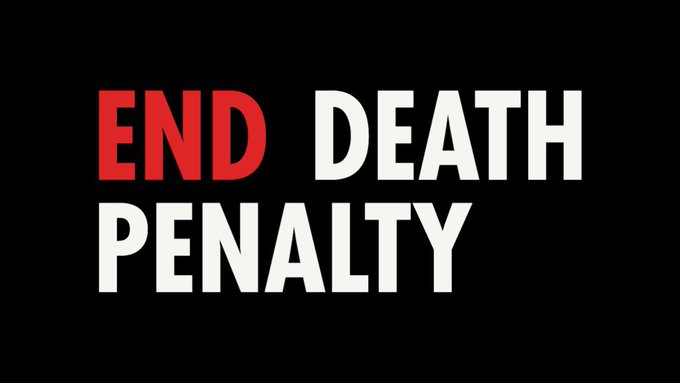|
Getting your Trinity Audio player ready…
|
By Veritas
The 10th of October is the World Day Against the Death Penalty and we need to ask ourselves the question: Where does Zimbabwe stand on this issue? The answer is that Zimbabwe has a President who has spoken out against the death penalty and we may be on the verge of bringing in a Bill to Parliament that will take the death penalty off the statute books.
The research was done with opinion leaders in Zimbabwe which showed that a large majority of them thought the death penalty should be done away with. President Mnangagwa wrote a foreword to this published research in which he advocated abolition [link]. A model Bill was drawn up by Veritas taking on board local and international advice and this was made available to parliamentarians and a significant number of citizens; the Bill can be accessed on the Veritas website [link]. Several MPs had raised motions in Parliament supporting the removal of the death penalty from our law. The motions were getting wide support when the COVID pandemic tragically intervened and disrupted the work of Parliament.
Just before the disruption caused by COVID the Speaker had undertaken to organise a joint session of the Houses of Parliament to thoroughly debate the death penalty. The Global Death Penalty Project, representatives of the Law Faculties of Zimbabwean Universities, the Law Society of Zimbabwe would all have made presentations at this session, and there would have been distinguished visitors: our President and other Presidents whose countries had abolished the death penalty [including the President of Mongolia]. We were hopeful that a joint motion toward abolition would have been passed.
This meeting had to be postponed and since then parliamentary work has been very curtailed. Recently however the Speaker of the National Assembly, Hon Advocate Jacob Mudenda, has said he would engage with the Leader of Government Business in the Assembly on the issue.
World Position on Abolition
· 108 countries in the world have abolished the death penalty for all crimes.
· Nearly half the independent States in Africa – 30 out of 54 States – have completely abolished the death penalty. Only three have recently carried out an execution. The AU is pushing for abolition.
· 28 countries worldwide are abolitionists in practice, i.e. they have not executed anyone for at least 10 years. Zimbabwe falls into this category, but it should be noted that it is not a satisfactory position on abolition: our courts continue to sentence people to death even though the penalty is not carried out in practice. It is not a secure position either – after changes in government, several countries in this category started mass executions of a backlog of prisoners.
· 56 countries are still retentionists but this figure is being reduced. Sierra Leone is the first country in Africa this year to abolish it. We hope the trend across the continent and beyond, to reject capital punishment, continues apace.
It is noteworthy that the five countries that carried out the most executions are totalitarian regimes.
A Good Moment To Abolish
It would be good if Zimbabwe would follow the worldwide trend and abolish it. Zimbabwe used to be one of the leading countries in Africa on issues such as this.
With the UN Universal Periodic Review [UPR] on Human Rights meeting coming up towards the end of the year, it would be a particularly good time to get a motion calling on the Government to introduce a Death Penalty Abolition Bill in Parliament and ask the Minister of Justice to take it from there. It would be a success story for the Government’s Report for the UPR when the Government attends the UPR Meeting in Geneva.
A Point of Interest – Women and the Death Penalty, an Invisible Reality
This year’s theme for World Day Against the Death Penalty is Women and the Death Penalty, and the UN calls for all women to work for abolition.
In fact, our law does not permit the execution of women, but women and children suffer terribly nonetheless. If their husbands and fathers are executed they are deprived of family life and income and are often stigmatised or even ostracised by their communities.
